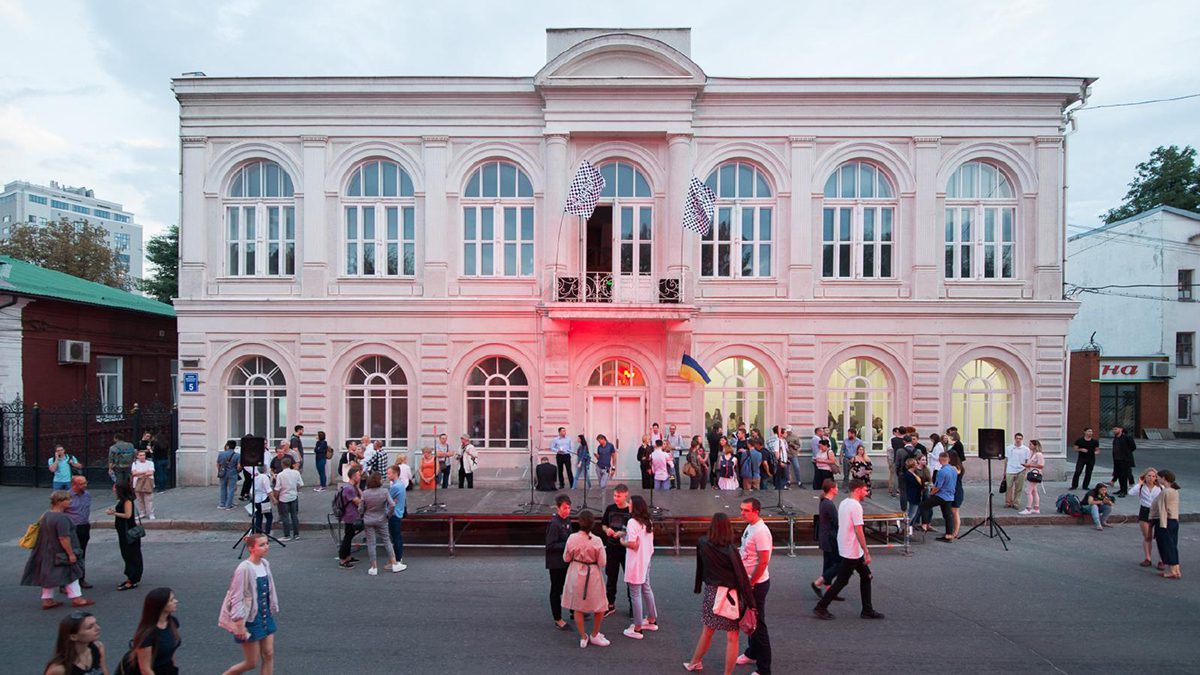Leaders of the Kharkiv School of Architecture have responded to Norman Foster’s plans to create a new masterplan for their city, welcoming the attention of a “big name” architect but hoping it will provoke a discussion about who should be involved in the process.
Panoramic view of the city of Kharkiv
Norman Foster met with Kharkiv city mayor Ihor Terekhov in Geneva earlier this week to discuss rebuilding the city alongside a panel of experts from Oxford University, Harvard University and the Norman Foster Foundation.
Foster presented a manifesto outlining his plans to create a “city of the future” in Kharkiv by drawing together global and local expertise. “I undertake to assemble the best minds with the best planning, architectural, design and engineering skills in the world to bear on the rebirth of the city of Kharkiv,” he wrote. “I would seek to bring together the top Ukrainian talents with worldwide expertise and advice.”
Speaking at a webinar hosted by Architecture Today, Kharkiv School of Architecture founder Oleg Drozdov said Ukraine’s leaders should be wary of “intellectual colonisation” when thinking about the future of its cities. Deputy Vice Chancellor of the school, Iryna Matsevko echoed his sentiment, adding that, while they welcomed the attention of star architects, the city must call on architects who have deep knowledge of the local context to avoid a “copy paste” rebuilding programme.
“The 21st century is the century of stars, and for sure our authority will invite a lot of big names, not only in architecture but also in other spheres. People like this attention for the country, so we can’t avoid it, but as experts we should be very clear with our statements and to open this discussion,” said Matsevko.
“Who – and why – should be involved in the discussion in the process of reconstruction? This is very important especially for Ukraine, a country which is still in a period of transformation, a country which is still learning how to discuss,” she added. “I believe it should be architects and experts who already have experience of working in Ukraine. It’s very important to understand the local context, the political situation, the cultural background. There are a lot of architects who already have experience working in Ukraine and experts who already deal with post-war reconstruction. In this case, it’s very important to link them with local experts – not to make copy paste, but also to think about how to apply the best experience in local context. We should discuss on the local level who and why should be involved.”
“Of course we should bring experts [from] abroad for this discussion as well, but it’s very important to locate global experience and knowledge in the local context. I hope the invitation of such a big name will provoke the discussion about who should be involved in this discussion and in the process of rethinking post-war cities in Ukraine from abroad.”
Founded in 2017, The Kharkiv School of Architecture was located in northeast Ukraine prior to the war (ph: Andriy Yaryhin)
Architecture Today held a webinar with the Kharkiv School of Architecture to hear from Drozdov and Matsevko, as well as students, about the difficulties the school faces in continuing to teach from a temporary location in Lviv.
The private architecture school currently faces a lack of funding and is calling for donations to help support its continuation. Architecture Today is facilitating fundraising through a Just Giving campaign for the Kharkiv School of Architecture. We have raised just under £44,000 of our £50,000 target – please donate and watch our webinar to find out how your contributions will help.
















